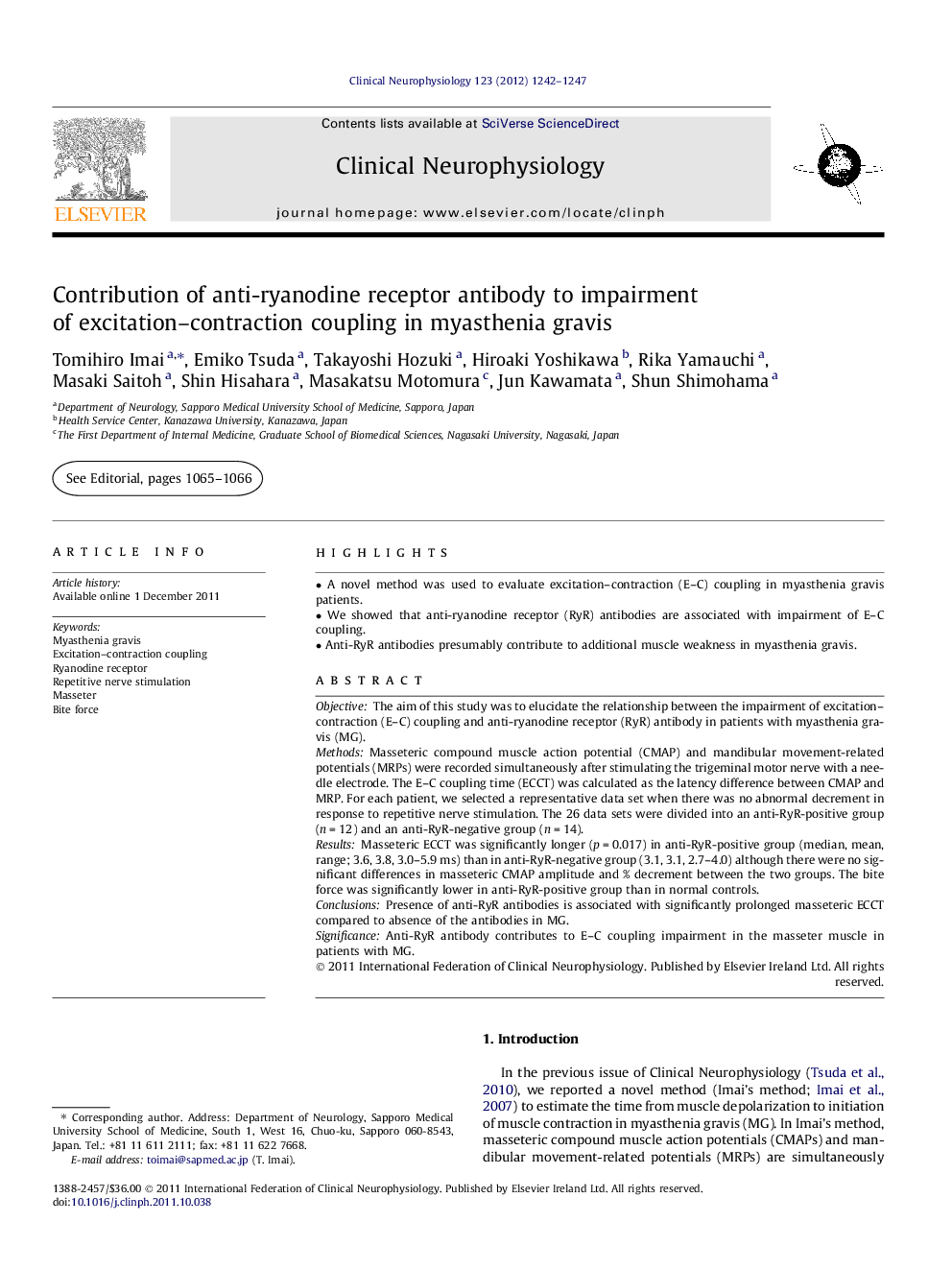| کد مقاله | کد نشریه | سال انتشار | مقاله انگلیسی | نسخه تمام متن |
|---|---|---|---|---|
| 3045025 | 1185014 | 2012 | 6 صفحه PDF | دانلود رایگان |

ObjectiveThe aim of this study was to elucidate the relationship between the impairment of excitation–contraction (E–C) coupling and anti-ryanodine receptor (RyR) antibody in patients with myasthenia gravis (MG).MethodsMasseteric compound muscle action potential (CMAP) and mandibular movement-related potentials (MRPs) were recorded simultaneously after stimulating the trigeminal motor nerve with a needle electrode. The E–C coupling time (ECCT) was calculated as the latency difference between CMAP and MRP. For each patient, we selected a representative data set when there was no abnormal decrement in response to repetitive nerve stimulation. The 26 data sets were divided into an anti-RyR-positive group (n = 12) and an anti-RyR-negative group (n = 14).ResultsMasseteric ECCT was significantly longer (p = 0.017) in anti-RyR-positive group (median, mean, range; 3.6, 3.8, 3.0–5.9 ms) than in anti-RyR-negative group (3.1, 3.1, 2.7–4.0) although there were no significant differences in masseteric CMAP amplitude and % decrement between the two groups. The bite force was significantly lower in anti-RyR-positive group than in normal controls.ConclusionsPresence of anti-RyR antibodies is associated with significantly prolonged masseteric ECCT compared to absence of the antibodies in MG.SignificanceAnti-RyR antibody contributes to E–C coupling impairment in the masseter muscle in patients with MG.
► A novel method was used to evaluate excitation–contraction (E–C) coupling in myasthenia gravis patients.
► We showed that anti-ryanodine receptor (RyR) antibodies are associated with impairment of E–C coupling.
► Anti-RyR antibodies presumably contribute to additional muscle weakness in myasthenia gravis.
Journal: Clinical Neurophysiology - Volume 123, Issue 6, June 2012, Pages 1242–1247